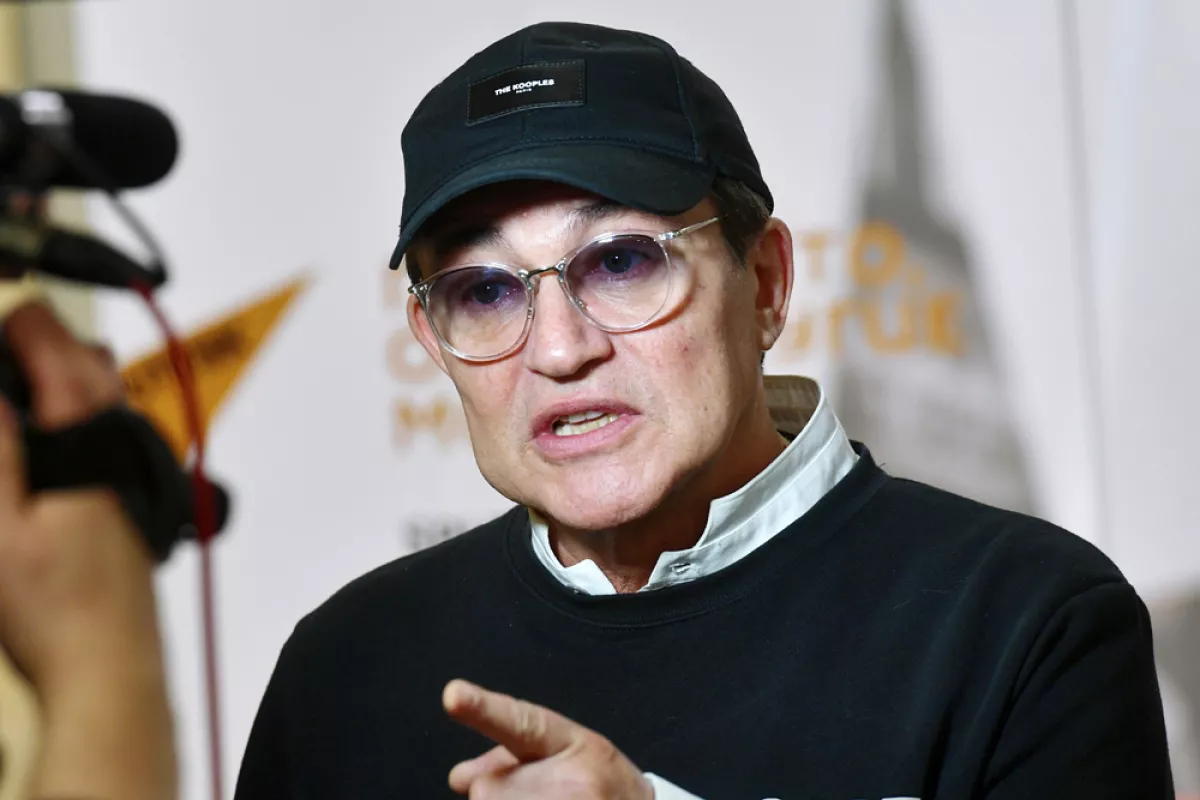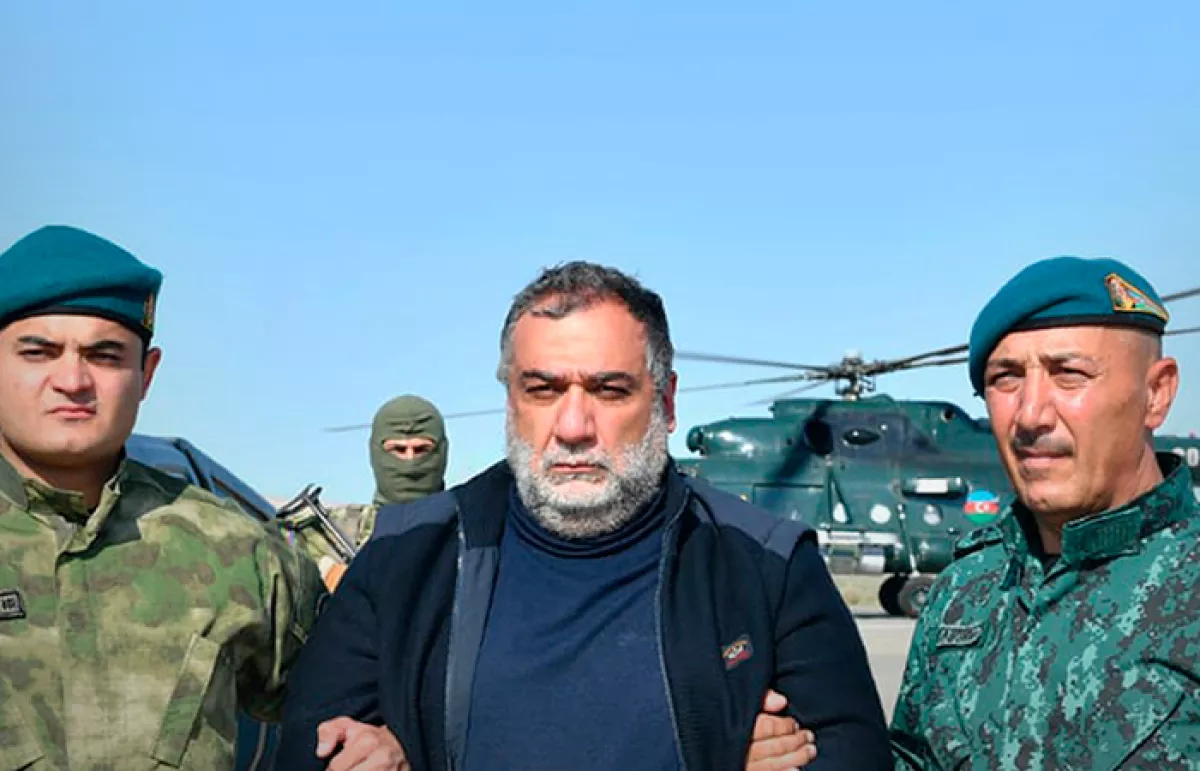Can good deeds ever justify war crimes? Hitler also built many autobahns
Surprising me personally is quite a challenge. Of course, if I were to suddenly see something extraordinary—like a person with three legs or a tail—I might be taken aback. Although, in the first case, I'd probably think, "It must be a film set, just some special effects," and in the second, recalling my school biology lessons, I’d likely mutter, "It's not so strange, it's called atavism."
But this is a completely different situation, and I was indeed a little surprised. Forgive the pun, but it's not surprising in the usual sense. The person who surprised me truly made an effort.
"It's not my business to deal with accusations, but I can say how much this person has done for his homeland." Russian television presenter, journalist, musician, director, as well as showman, actor, singer, and even producer Dmitry Dibrov shared his experience of visiting Dilijan (Armenia), where he witnessed firsthand a school built by citizen Vardanyan—the very same Ruben who is set to stand trial in Baku on January 17th. Ruben Vardanyan faces charges of particularly serious crimes, including financing terrorism, creating illegal armed groups, and illegally crossing the Azerbaijani border. According to Dibrov, the school is equipped with the latest advancements in science. "This alone speaks volumes about the character of the person behind it—someone of the highest nobility and humanity," Dibrov stated.

I wouldn’t want to disappoint anyone, but building a school in Armenia does not serve as a mitigating factor when considering the particularly serious crimes committed on Azerbaijani territory. Engaging in separatism in Azerbaijan does no favours to one’s health, and this should be kept in mind. Of course, for the construction of a school in Dilijan, Armenia, Ruben Vardanyan can be thanked and even awarded the "For Services to the Homeland" medal or even the Khorenatsi Medal, but the awarding process will have to wait because "it’s up to the court to decide," and Armenia is something he won’t be seeing anytime soon. The reason is that in Azerbaijan, for all that Ruben Vardanyan has done (again, financing terrorism, creating illegal armed formations, and illegally crossing the Azerbaijani border), medals are not awarded. Instead, what is guaranteed is restricted freedom of movement, investigation, legal proceedings, and, as my revolutionary sense of justice suggests, "a long prison sentence due to the particular social danger of his actions."
In the case of a confession of guilt and subsequent sincere and heartfelt repentance, as well as the betrayal of accomplices—well, I can’t say anything definitive here—again, it will be up to the court to decide. During a long sentence, three meals a day are guaranteed, along with lectures on the harms of separatism and terrorism. And, if the internal rules of the penitentiary institution are strictly followed, regular walks in the fresh air, packages from relatives, and visits to the prison library are also included. I highly recommend requesting the following books: The Splendour and Misery of Courtesans, The Magic Skin, and Buddenbrooks. Although, I admit, Buddenbrooks may be somewhat difficult for Vardanyan to comprehend, but considering the severity of the charges, he will have more than enough time. Time for reading, for later understanding of what’s been read, for repentance, and, well, just for reflection in general.
Furthermore, Dmitry Alexandrovich added, allow me to quote: "We must do everything necessary to help people break free from the terrible circumstances called war. Whatever the reason for the war, people suffer, and this is its most terrible consequence." Well, this advice comes a bit late, as people have already broken free from the terrible circumstances called war. The war ended, and for those who may not be aware, it ended on September 28, 2023, with the self-dissolution of the separatist pseudo-state entity and the subsequent entirely voluntary departure of the Armenian population (they were offered the option to stay and accept Azerbaijani citizenship, but the Armenians themselves, without any coercion, made their voluntary choice).

By the way, Ruben Vardanyan was detained at the Lachin checkpoint when, blending in with the crowd, he tried to leave the territory of Azerbaijan. In some respects, I do agree with Dmitry Alexandrovich: people suffer. And people have suffered, specifically our people, starting from 1987, when all Azerbaijanis were expelled from Armenia, and later from the temporarily occupied Karabakh. Has Dibrov ever heard of Azerbaijani refugees and internally displaced persons? Is the suffering of more than a million Azerbaijanis of no interest to him? Here, I’m not at all surprised, and I wouldn’t recommend you, reader, be surprised either. As they say, “Neglect, let’s waltz,” we don’t need anyone’s sympathy, let alone pity.
Each guilty war criminal faces a sentence based on the severity of their crimes. They’d better pray that God forgives their sins, and if He doesn’t, they should at least ask for long days and short nights. Because during the day, the sun shines. As for the school built in Dilijan, it’s undeniably a good and noble deed, and perhaps it will be recognized in the afterlife. However, it cannot be considered a mitigating factor in the current case—especially since the school was built in Armenia, while the crimes were committed on internationally recognized Azerbaijani territory. Therefore, the accusations must be investigated, and they will be. If not, who knows where it could lead—perhaps to the point where one could argue, "Hitler built many autobahns." Or am I mistaken?








